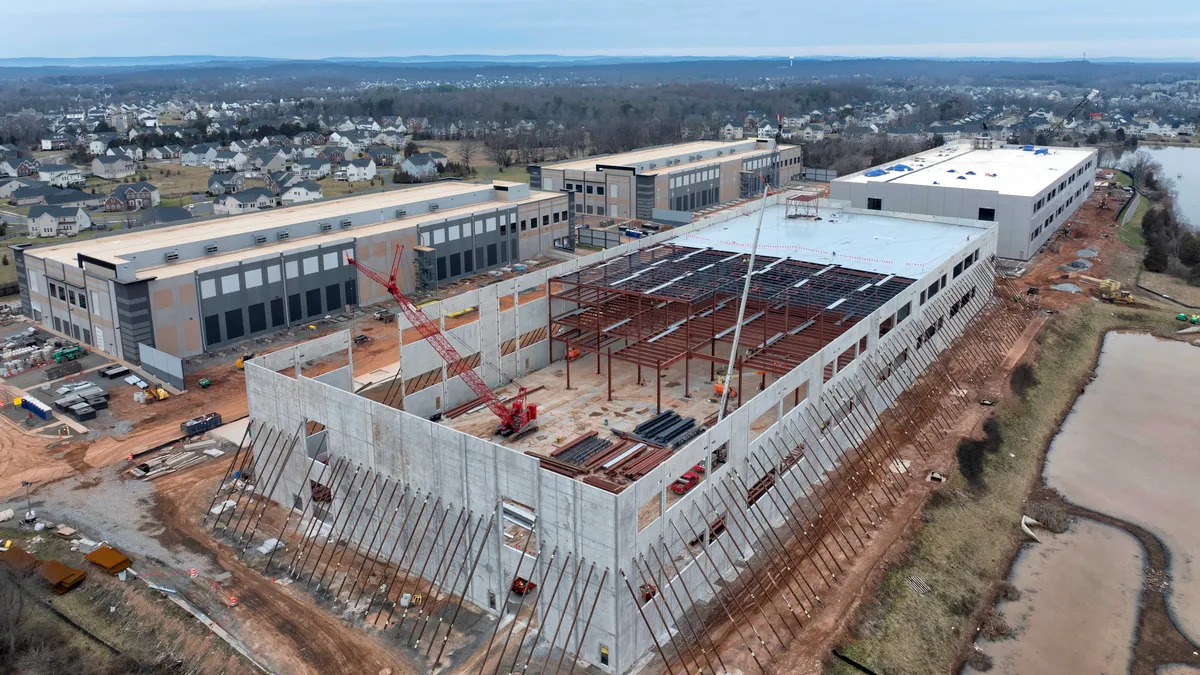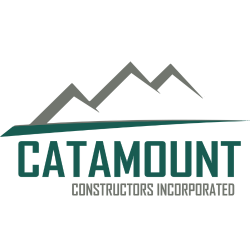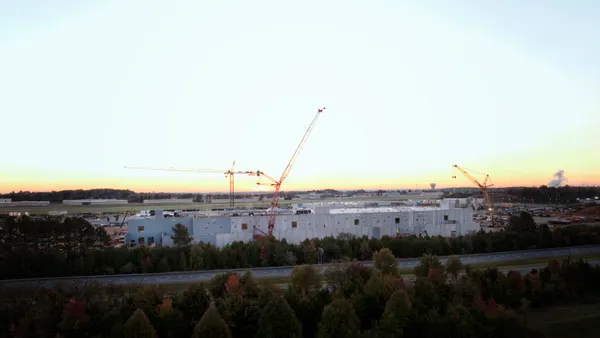Dive Brief:
- More than half — 55% — of the $3.55 billion invested in construction technology in the first quarter of 2025 went toward funding next-generation robotics and artificial intelligence-enabled technology, compared to less than 30% in all of 2024, according to a report from Chicago-based Nymbl Ventures, a venture capital firm specializing in the built world.
- The firm said the metric was remarkable, when considering that the broader venture capital landscape only had a 30% allocation to AI, according to the report.
- On its own, AI was the winner in the quarter — 46% of total investment dollars went toward AI-enabled solutions, a significant increase from an average of 25% in 2024 and less than 20% in 2023, per the report.
Dive Insight:
The report divided funding into three categories:
- Building tech: Solutions for developers, owners, operators, underwriters and brokers of commercial, industrial and residential buildings, such as HVAC systems, structural components, digital twins and carbon management.
- Infrastructure tech: All technologies related to the maintenance, management and optimization of horizontal assets such as bridges, roads, advanced manufacturing and utilities.
- Construction tech: All technologies involved in the construction of vertical and horizontal assets that are removed at the end of a project, such as project, field and workforce management; financing; preconstruction; and industrialized construction solutions.
Of the three categories, the construction tech segment was the only one to see year-over-year growth, according to the report. It rose 46% from 2024’s same period and 17% quarter over quarter. By contrast, investments in building tech and infrastructure tech were significantly reduced — down 58% and 29% annually, respectively, and 65% and 14% for the quarter.
On the deal side of investments, growth-stage funding rounds remained strong in Q1, with 47 post-Series A deals. This was second only to Q4 2024, which saw 53 Series B and later-stage deals close, per the report.
However, there were few exits — eight overall — following market volatility and an uncertain economy, as the world grappled with the potential of tariffs coming out of the U.S. Of those eight, seven had raised less than $15 million, and at least three of the businesses were distressed. Last year, there were 42 exits overall, according to Nymbl. In other words, investors have chosen to stay in the sector, for now, except when their hands have been forced by deteriorating conditions.
Looking forward, Nymbl Ventures predicts that M&A activity will continue to be slow as investors and buyers wait out economic uncertainty. Despite the cautious estimate, it said that the venture environment’s outlook remains strong.
“Venture debt, distressed M&A and highly selective investing into early and growth-stage startups are likely to be emerging themes of Q2,” the report said.















